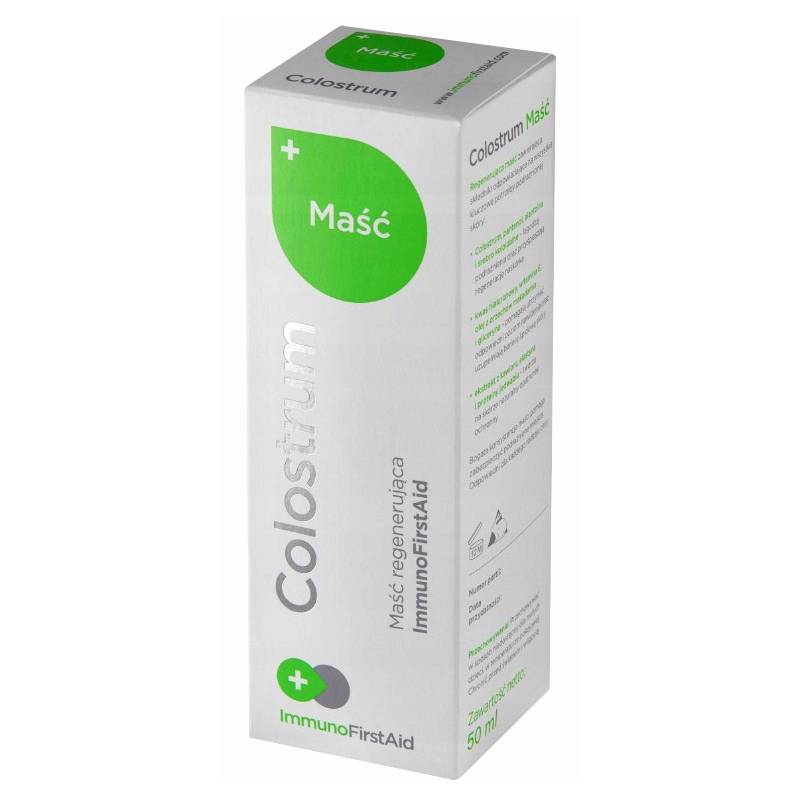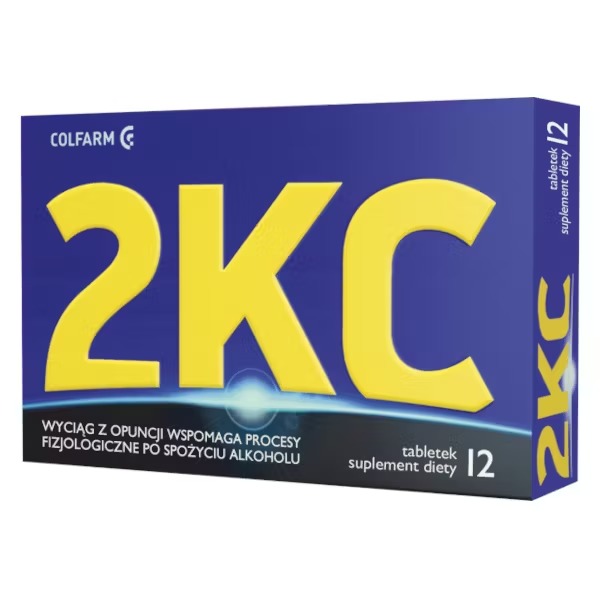Senamina Sleep medicine 12.5 mg 14 tablets
Manufacturer: ADAMED PHARMA S.A.
Indications
The preparation is indicated for the short-term, symptomatic treatment of sporadic insomnia in adults caused by:
- difficulty falling asleep,
- frequent night awakenings,
- waking up early in the morning due to stress or time zone changes.
Composition
1 tablet contains:
- active substance: doxylamine hydrosuccinate 12.5 mg,
- other substances: calcium hydrogen phosphate dihydrate, microcrystalline cellulose, sodium starch glycolate (type A), colloidal anhydrous silica, magnesium stearate, hypromellose (15 mPa s), polydextrose, talc, maltodextrin, medium chain triglycerides, cochineal red lake (E 124), sunset yellow lake (E 110), quinoline yellow lake (E 104).
Dosage
Do not exceed the recommended doses, as this will not increase the effectiveness of the drug and may harm your health and life. If you have any doubts regarding the use of the preparation, consult your doctor.
Adults: 1-2 tablets (12.5–25 mg) taken 30 minutes before bedtime.
The maximum dose is 25 mg per day.
The occurrence of daytime drowsiness is an indication to reduce the dose or take the medication earlier in order to ensure at least 8 hours of uninterrupted sleep after taking the preparation.
Use for the shortest period possible. Do not use for longer than 7 days without consulting a doctor.
If you experience persistent sleep problems, consult your doctor.
Special patient groups: Caution should be exercised in elderly patients (over 65 years of age); they are at greater risk of adverse reactions.
- In this group of patients the recommended starting dose is 1 tablet (12.5 mg) daily, 30 minutes before bedtime.
- If necessary, the dose may be increased to 2 tablets (25 mg) daily.
- If side effects occur, the dose should be reduced to 12.5 mg daily.
In patients with mild renal or hepatic impairment, it is recommended to limit the maximum daily dose to 12.5 mg. The preparation should not be used in patients with moderate renal or hepatic impairment. The use of the preparation in the case of severe renal or hepatic impairment is contraindicated. The score line only facilitates breaking the tablet for easier swallowing, it does not allow dividing the tablet into equal doses.
Contraindications
- Unfortunately, even if there are indications for the use of the preparation, it cannot always be used.
- You cannot use the preparation if you are allergic (hypersensitive) to any of the ingredients of the preparation or to other antihistamines (risk of cross-hypersensitivity reaction).
- The preparation is contraindicated for use in pregnant and breastfeeding women.
- Do not use in children and adolescents under 18 years of age.
Contraindications to the use of the preparation are:
- bronchial asthma,
- chronic bronchitis,
- emphysema,
- glaucoma,
- prostatic hyperplasia,
- peptic ulcer disease causing narrowing of the digestive tract,
- pyloroduodenal stenosis,
- bladder neck stenosis,
- severe kidney or liver dysfunction,
- parallel use of the following drugs:
- drugs from the monoamine oxidase inhibitors (MAO) group
- drugs that strongly inhibit the activity of cytochrome P450 isoenzymes, such as:
- SSRI drugs (fluoxetine, fluvoxamine, paroxetine)
- macrolide antibiotics (clarithromycin, erythromycin, telithromycin)
- antiarrhythmic drugs (amiodarone)
- protease inhibitors (ritonavir, telaprevir, indinavir)
- azole antifungal drugs (fluconazole, ketoconazole, itraconazole, voriconazole)
- other antifungal drugs (terbinafine)
- quinidine
- nefazodone
- Bupropion
- gemfibrozil.
Packaging
14 tablets
Comments
Storage
- There are no special requirements for storage of the medicinal product.
- Keep the medicine out of the sight and reach of children.
- Do not use this medicine after the expiry date (EXP) which is stated on the packaging.
- The expiration date (EXP) refers to the last day of the month stated.
- Medicines should not be disposed of via wastewater or household waste. Ask your pharmacist how to throw away medicines you no longer use. These actions will help protect the environment.
Adverse reactions
Like any medicine, Senamina can cause side effects, although they will not occur in all patients using this medicine. Remember that the expected benefits of using the medicine are usually greater than the damage resulting from the occurrence of side effects.
Very often:
- somnolence.
Often or not very often:
- visual disturbances (double vision, blurred vision),
- dizziness, headaches,
- tinnitus,
- excessive sedation,
- insomnia,
- nervousness,
- nightmares,
- orthostatic hypotension,
- increased amount of bronchial secretions,
- dyspnoea,
- dryness of the oral mucosa,
- constipation, nausea, vomiting, diarrhea, abdominal pain, indigestion,
- urinary retention,
- weakness,
- general feeling of being unwell,
- tiredness,
- peripheral edema,
- rash.
Rarely:
- tremors, seizures, agitation (especially in the elderly),
- hematological disorders (thrombocytopenia, hemolytic anemia, agranulocytosis).
Frequency unknown:
- heart rhythm disturbances, palpitations,
- duodenogastric reflux,
- liver dysfunction (cholestatic jaundice),
- QT interval prolongation on ECG recording,
- appetite disorders,
- muscle pain,
- paresthesia,
- psycho-motor disorders,
- extrapyramidal disorders,
- coordination disorders,
- depression,
- baldness,
- allergic dermatitis,
- excessive sweating,
- photosensitivity,
- arterial hypotension.
Interactions
- Due to the risk of increased inhibition of the central nervous system and increased cholinolytic activity, the simultaneous use of the preparation should be avoided:
- with drugs that depress the central nervous system (e.g. hypnotics, sedatives, anxiolytics, barbiturates, opioid analgesics),
- with tricyclic antidepressants or other drugs with anticholinergic activity.
- It is not recommended to consume grapefruit or grapefruit juice while taking the preparation.
- The preparation may affect the metabolism of other drugs and cause their effects to be intensified, which in some cases may pose a threat to health and life.
- If you are using other medications, consult your doctor before taking the preparation.
- Concomitant use of the preparation with drugs from the monoamine oxidase inhibitors (MAO) group is contraindicated.
- It is contraindicated to use the preparation concurrently with drugs that strongly inhibit the activity of cytochrome P450 isoenzymes, such as:
- SSRI antidepressants (fluoxetine, fluvoxamine, paroxetine),
- other antidepressants (bupropion, nefazodone),
- macrolide antibiotics (clarithromycin, erythromycin, telithromycin),
- antiarrhythmic drugs (amiodarone, quinidine),
- protease inhibitors (ritonavir, telaprevir, indinavir),
- azole antifungal drugs (fluconazole, ketoconazole, itraconazole, voriconazole),
- other antifungal drugs (terbinafine),
- certain lipid-lowering medications (gemfibrozil).
- In people taking doxylamine, adrenaline should not be used in case of hypotension (noradrenaline may, however, be used in case of shock).
- Concomitant use of doxylamine should be avoided:
- with drugs that may prolong the QT interval on the ECG recording (e.g. antiarrhythmic drugs, some antibiotics, some antimalarial drugs, some antihistamines, some lipid-lowering drugs, some antipsychotic drugs),
- with drugs that depress the central nervous system, including hypnotics (e.g. zolpidem), sedatives (e.g. diazepam), anxiolytics (e.g. alprazolam), barbiturates, opioid analgesics, antipsychotics and procarbazine, due to the risk of increased depressant effects on the central nervous system,
- with antihypertensive drugs acting on the central nervous system, such as guanabenz, clonidine or methyldopa, due to the risk of increased sedative effects,
- with anticholinergic drugs such as tricyclic antidepressants (e.g. amitriptyline), drugs used in the treatment of Parkinson’s disease, MAO inhibitors, neuroleptics (e.g. chlorpromazine, risperidone), disopyramide or antispasmodics (e.g. atropine and its derivatives), due to the risk of intensification of the anticholinergic effect,
- with other antihistamines (e.g. diphenhydramine),
- with anticonvulsants (e.g. carbamazepine),
- with drugs with a narrow therapeutic index (e.g. phenytoin, digoxin, warfarin, lithium, aminoglycosides, vancomycin), due to the risk of increased exposure to these drugs.
- The simultaneous use of the preparation with antihistamines applied to the skin (e.g. diphenhydramine in the form of a cream, ointment or aerosol), antispasmodic drugs (e.g. atropine, nightshade alkaloids) or scopolamine requires consultation with a doctor each time. The doctor will decide whether such combined treatment is allowed.
- Doxylamine may mask the ototoxic (hearing-damaging) effects of some drugs, such as parenteral aminoglycosides, carboplatin, cisplatin, chloroquine, and erythromycin. Periodic, regular hearing tests are recommended.
- Caution should be exercised when using drugs that may cause disturbances in water and electrolyte balance, including hypokalemia (e.g. some diuretics).
Warnings and precautions
- Certain diseases and other circumstances may constitute a contraindication to the use or an indication for changing the dosage of the preparation. In certain situations, it may be necessary to carry out specific control tests.
- Please read the Patient Information Guide included in the leaflet to assess whether you can use this medicine yourself.
- The preparation should only be used short-term (as short as possible) and only in recommended doses.
- Do not use for longer than 7 days without consulting a doctor.
- The occurrence of daytime drowsiness is an indication to reduce the dose or take it earlier to ensure at least 8 hours of sleep after taking the preparation.
- Do not drink alcohol while using the preparation. Alcohol may intensify the inhibitory effect of doxylamine on the central nervous system.
- The drug should not be used in patients with moderate renal or hepatic impairment. Caution should be exercised in patients with mild renal or hepatic impairment and the dose should be reduced to 12.5 mg per day.
- Antihistamines can cause QT prolongation on ECG. Therefore, special caution should be exercised in people:
- in old age,
- with heart failure,
- with QT interval prolongation or with risk factors for QT interval prolongation.
- Elderly people (over 65 years of age) may be more sensitive to the effects of the usual dose and are at greater risk of side effects. Special attention should be paid to cognitive impairment, including memory impairment. In this group of people, the preparation may also increase the risk of falling and injury or wounding.
- Elderly people are particularly sensitive to the anticholinergic effects of the drug.
- Due to the anticholinergic effect of the preparation, special caution should be exercised in patients with:
- with increased intraocular pressure,
- with angle-closure glaucoma,
- with poorly controlled primary glaucoma,
- with urinary retention or urinary tract stenosis (difficulty in passing urine),
- with limited patency of the gastrointestinal tract.
- The preparation may lower the seizure threshold and therefore special caution should be exercised in patients with epilepsy or with an increased risk of seizures. Even when used in therapeutic doses, the preparation may cause an epileptic seizure.
- Doxylamine may mask the ototoxic (hearing-damaging) effects of some drugs, such as parenteral aminoglycosides, carboplatin, cisplatin, chloroquine, and erythromycin. Periodic, regular hearing tests are recommended.
- Caution should be exercised as the preparation may exacerbate the symptoms of dehydration and heat stroke (due to reduced sweating due to the cholinolytic effect).
- Use with caution in case of hypokalemia (decreased potassium concentration in the blood) or other water and electrolyte disturbances.
- Repeated use of hypnotics or sedatives may cause their effectiveness to decrease (tolerance phenomenon).
- Sleeping pills can cause amnesia, especially in the first few hours after use. To reduce the risk of amnesia, ensure that you have the opportunity for sufficient (7–8 hours) and uninterrupted sleep and use the drug as directed.
- The preparation may influence the results of allergy skin tests.
- Additional information about other ingredients of the preparation: the preparation contains mannitol, which may have a laxative effect.
Use in children and adolescents
- Do not use in persons under 18 years of age.
Taking the medicine with food, drink and alcohol
- You should not drink alcohol while taking this medicine.
- The medicine can be taken regardless of meals.
Use of the drug during pregnancy and breastfeeding
- Do not use during pregnancy unless your doctor, after considering the expected benefits and possible risks, considers the use of the preparation to be absolutely necessary.
- The use of the preparation is contraindicated during breastfeeding.
Effects on ability to drive
- The preparation significantly impairs the ability to drive vehicles and operate equipment/machinery.
- May cause drowsiness, reduced alertness and impaired reaction ability.
- While using the preparation, do not drive or operate equipment/machinery.
Responsible entity
ADAMED PHARMA S.A.
Before use, read the leaflet, which contains indications, contraindications, data on adverse effects and dosage, and information on the use of the medicinal product, or consult a doctor or pharmacist, as any drug used improperly may threaten your life or health.






































Reviews
Clear filtersThere are no reviews yet.